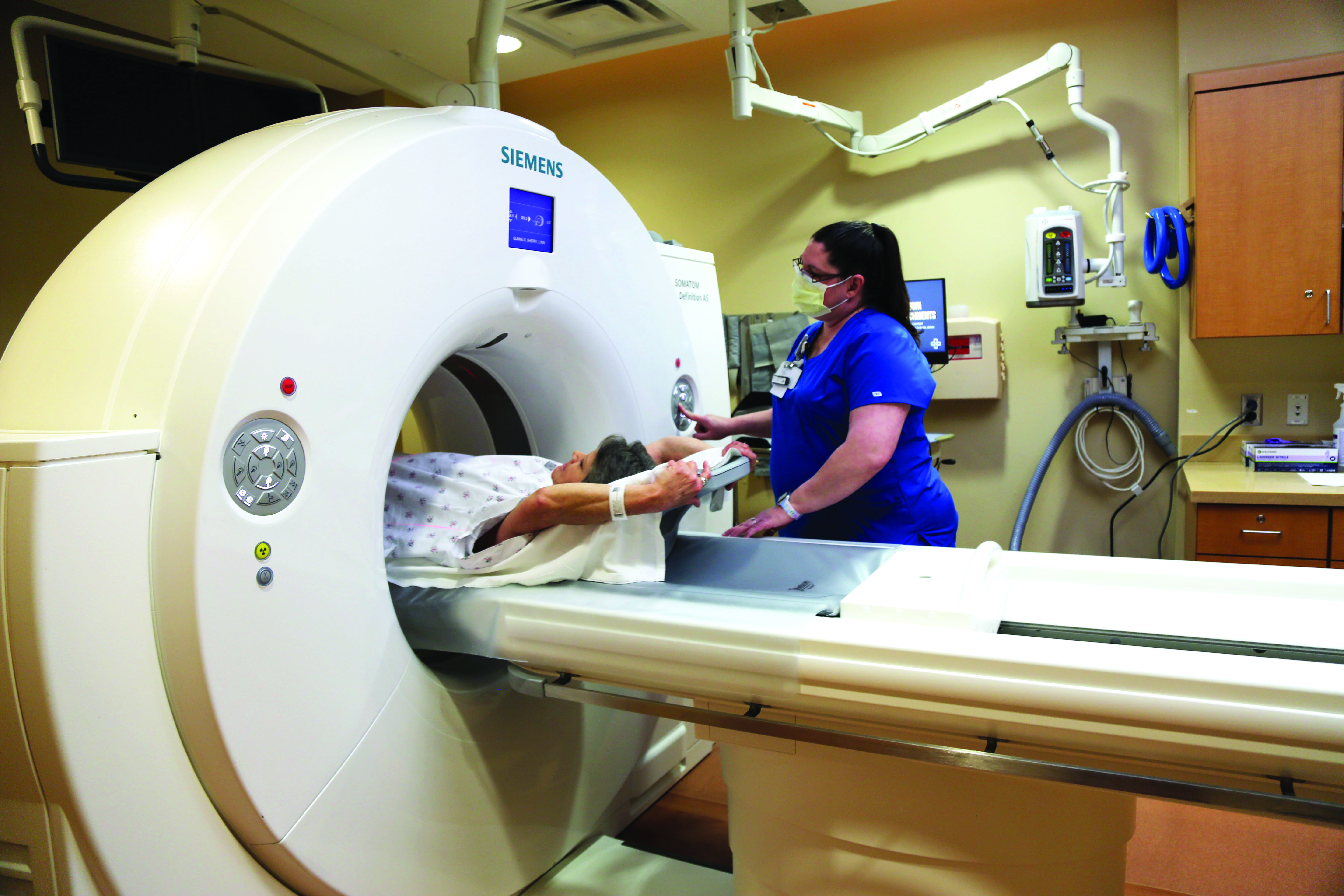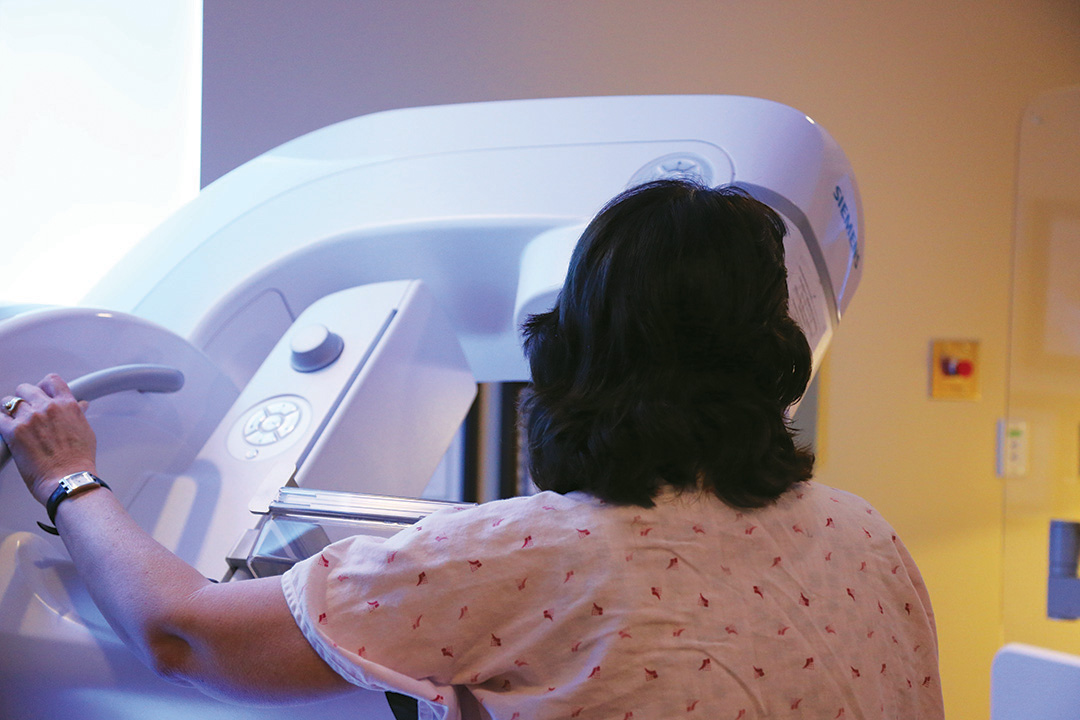
Published on December 13, 2023
Read Time: 4 Minutes
Three Things to Know
- Women at average risk of breast cancer should begin yearly mammograms at age 40.
- Colonoscopies and stool-based tests can be used to screen patients for colon cancer.
- Lung cancer screening involves a low-dose CT scan.
When it comes to cancer, early detection allows for the best outcomes. The earlier you can catch cancer, the more treatment options you have available and the better chances for survival.
Unfortunately, many people don’t experience signs of cancer until the disease is in its advanced stages. However, don’t wait for symptoms to appear. Regular screenings are important because they can find cancer before you have symptoms.
At Phelps Health, we encourage you to make your health a priority.
From mammograms that detect breast cancer to colonoscopies, which can find colorectal cancer, screenings can save lives. So, how do you know which screenings are right for you? When should you be screened for cancer?
Refer to the recommended cancer screening guidelines below.
Breast Cancer Screening
- Women ages 25-39: See your primary care provider for your breast cancer risk assessment and breast exam every 1 to 3 years.
- Women ages 40 and over: Get your annual breast cancer risk assessment, breast exam and mammogram.
Women at average risk should begin yearly mammograms at age 40. If you have a family history of breast cancer, talk with your healthcare provider to decide if you should be screened earlier.

Lung Cancer Screening
Lung cancer screening, using a low-dose CT scan, is recommended for people who meet the following criteria:
- Ages 50-80
- Minimum 20 pack-years smoking history (To calculate pack-years, multiply the number of cigarette packs you smoked per day by the number of years you have smoked.)
- Current smoker or former smoker who quit less than 15 years ago
- No symptoms of lung cancer
Talk with your healthcare provider about beginning annual lung cancer screening.
Colorectal Cancer Screening
- If you are at average risk of colorectal cancer, you should start testing at age 45 and continue through age 75. (See recommended screening frequency below).
- After age 75, the decision to continue screening should be personalized.
- Colonoscopies and stool-based tests can be used to screen patients for colon cancer.
- A colonoscopy every 10 years is recommended
- for adults, beginning at age 45. As an alternative to a colonoscopy, a stool-based
- FIT (fecal immunochemical test) can be done once a year, or stool DNA tests can be done every 1 to 3 years.
- If you are at high risk for developing colorectal cancer (have a personal or family history of colon cancer or polyps), talk to your healthcare provider about screening recommendations.
Prostate Cancer Screening
- Starting at age 40, men at extremely high risk of prostate cancer (men who have more than one first-degree relative who had prostate cancer at an early age) should talk to their doctor about being screened.
- Starting at age 45, men at high risk of prostate cancer (African Americans or men who have a first-degree relative (father, brother, etc.) who was diagnosed with prostate cancer at an early age) should talk to their doctor about being screened.
- Starting at age 50, men at average risk of prostate cancer should talk to their doctor about being screened.
- Your overall health, not age alone, is important when making decisions about prostate cancer screenings.
Cervical Cancer Screening
Starting at age 21, women also should talk to their doctor or provider about Pap tests, or Pap smears, which screen for cervical cancer. Beginning at age 30, women should ask their healthcare provider about HPV (human papillomavirus) tests for cervical and other cancers.

Meet Amy Koenig
Learn more about Amy Koenig, who has served as Phelps Health’s cancer screening and prevention coordinator at the Delbert Day Cancer Institute (DDCI) since August 2023.
What are some of your job duties?
I work with the Siteman Cancer Outreach Research Engagement (SCORE) project to help plan and put on events at Phelps Health and in the community. This project is a Siteman Cancer Network (which the Phelps Health DDCI is part of) initiative to implement cancer screening events aimed at prevention and early diagnosis of breast, colorectal, lung and prostate cancer.
I also promote cancer screenings and prevention at community events and track cases through the lung cancer screening program.
With lung cancer screening, I compile statistics and send letters to patients about their results or remind them to return for annual screening or follow-up care. I also talk with providers and patients when there are questions.
What do you like most about your job?
My favorite part of my job is working with the caring staff at the DDCI. I also enjoy educating people about screenings and other healthy lifestyle choices. I enjoy the variety of working with people, planning events and interacting with data.
What else would you like people to know about your role?
I am working to create more community events to promote cancer screening, including some in conjunction with the SCORE project.
I am available to talk with groups to discuss appropriate screening at different decades in life and lifestyle choices to help prevent cancer. (Learn more by contacting me at (573) 458-7469 or akoenig@phelpshealth.org.)
We can’t prevent all cancer, but we can choose to take good care of ourselves, so our bodies are strong when or if we face a cancer diagnosis.
Are You Due for a Screening?
Contact your primary care provider today to check cancer screenings off your list. If you don’t have a primary care provider, call (573) 364-9000 to establish care with a Phelps Health provider today.